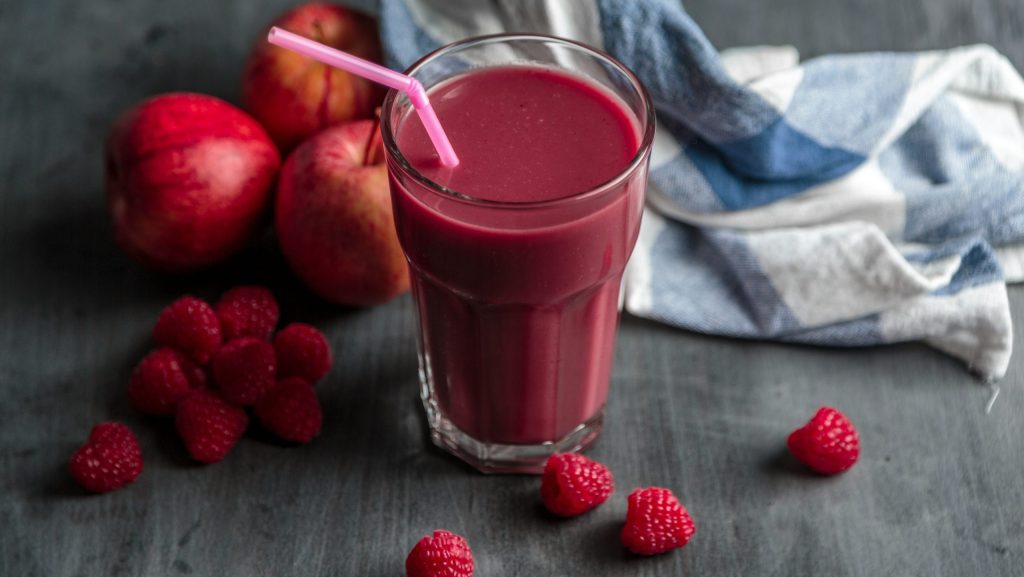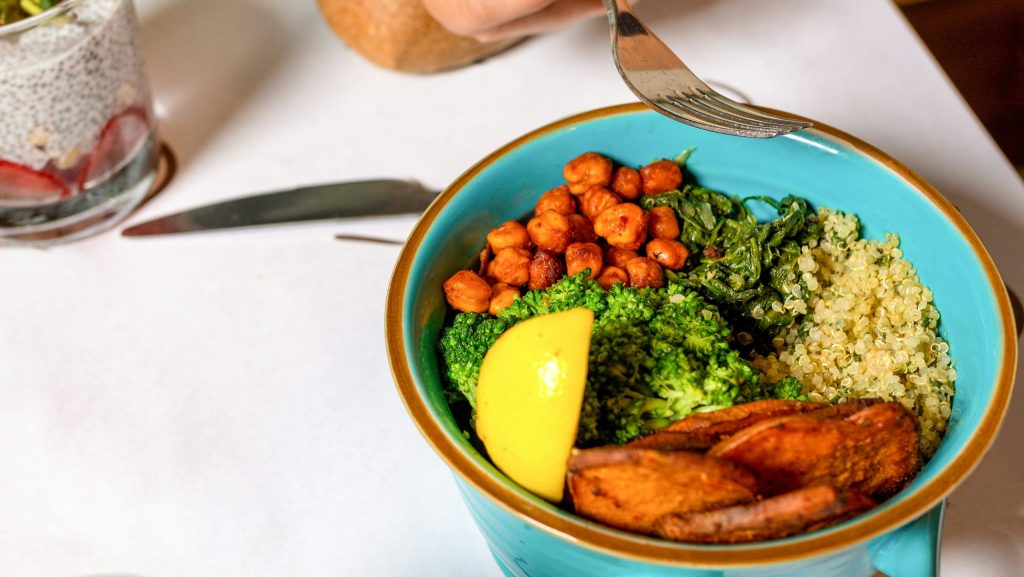Beginning a fitness regimen involves understanding the pivotal role of nutrition in enhancing performance and energy levels. Proper nutrition directly impacts exercise outcomes and is essential for those aiming to improve their physical fitness effectively.
Adequate dietary choices can significantly influence stamina, metabolism, and post-exercise recovery. This article provides a guide on energy foods that are beneficial for those new to physical fitness, focusing on scientifically backed nutrition advice.
Main Topics Covered:
- Top Energy Foods for Fitness Newbies: Identifying foods that provide sustained energy for beginners in fitness.
- Maximize Your Workout with Nutrition: Strategies for pre- and post-workout meals to enhance exercise effectiveness and recovery.
- Metabolism-Boosting Foods Explained: Examining foods that can increase metabolic rate and support weight loss efforts.
- Eating for Energy: Meal Planning Tips: Guidelines for planning meals and snacks to maintain energy levels throughout the day and during workouts.
- Avoiding Energy Slumps: What to Skip: Highlighting foods that may lead to decreased energy levels and how to avoid them for optimal fitness progress.
Understanding which foods to consume can significantly impact energy levels and workout effectiveness. This article aims to clarify the concept of energy-boosting foods, offering practical advice that can be easily incorporated into daily routines by those beginning their fitness journey. By focusing on nutrition that enhances energy levels and supports workout performance, individuals can achieve their fitness goals more efficiently.
“Did you know? Consuming protein within 30 minutes after a workout can significantly enhance muscle recovery and growth, making it a crucial component of fitness nutrition.”
Incorporating a balanced diet rich in energy foods is crucial for those looking to maintain high energy levels, boost their metabolism, and ensure optimal recovery after workouts. Through detailed exploration of each topic, readers will gain insights into how to select and incorporate the right foods into their diet to support their fitness objectives.
Starting a Fitness Regimen: The Role of Nutrition
Starting a fitness regimen involves understanding the pivotal role of nutrition, particularly the selection of energy foods, in enhancing performance and energy levels. Proper nutrition directly impacts exercise outcomes and is essential for improving physical fitness.
“Interesting Fact: Hydrating foods can contribute to over 20% of your daily water intake, significantly impacting hydration and energy levels.”
Essential Nutrients
Nutritional content is critical in energy foods. Proteins, complex carbohydrates, and healthy fats are essential for muscle repair, energy release, and long-term health. Sources such as chicken breast, tofu, legumes, whole grains, fruits, and vegetables provide these nutrients. Avocados, nuts, and seeds offer healthy fats necessary for energy storage.
Easy-to-Prepare Snacks
Convenience in snack preparation aids adherence to a nutritious diet. The following snacks are beneficial for maintaining energy levels:
- Greek Yogurt with Berries: Provides protein and antioxidants for muscle recovery and energy.
- Homemade Trail Mix: Combines nuts and dried fruits for sustained energy through healthy fats and sugars.
- Peanut Butter on Whole-Grain Toast: Balances protein, healthy fats, and complex carbohydrates for lasting energy.
Hydration for Energy
Hydration is key to maintaining energy levels and supporting fitness performance. Water, along with hydrating foods such as cucumbers, oranges, and watermelons, is essential for the balance of body fluids, nutrient transport, and muscle function. Consuming foods high in water content aids hydration and provides additional vitamins and minerals.
By focusing on these key areas, individuals starting their fitness journey can significantly improve their energy levels and workout effectiveness. Adequate nutrition, including essential nutrients, easy-to-prepare snacks, and proper hydration, plays a crucial role in fitness success.
Optimizing Fitness Regimen with Nutrition
Optimizing your fitness regimen involves more than just consistent workouts; it requires precise nutrition planning. The relationship between diet and exercise significantly impacts performance and recovery.
Pre-Workout Meals
Pre-workout meals are essential for maximizing performance. These meals should include a balance of carbohydrates, proteins, and fats to ensure sustained energy, muscle support, and endurance during workouts.
Consider the following examples:
| Food Item | Benefit |
|---|---|
| Oatmeal with Fruit | Provides sustained energy and fiber. |
| Smoothie with Protein | Offers quick-digesting proteins and carbs. |
| Chicken and Vegetable Wrap | Balances protein, carbs, and fats for endurance. |
These selections should be consumed 1-2 hours before exercising to optimize energy availability and workout performance.
Post-Workout Recovery
Nutrition after exercising is critical for muscle repair and replenishing energy stores. Post-workout meals and snacks should prioritize proteins for muscle repair and carbohydrates to restore energy levels. Efficient post-workout nutrition accelerates recovery, reduces muscle soreness, and enhances overall fitness progress.
“Interesting Fact: Consuming protein within 30 minutes after exercising can increase muscle protein synthesis by over 50%, highlighting the importance of timely post-workout nutrition.”
Supplements vs. Whole Foods
While supplements can offer convenience and targeted nutrition, whole foods provide a broader spectrum of vitamins, minerals, and other nutrients essential for health and performance. It’s crucial to balance supplement use with a diet rich in whole foods for optimal benefits.
Incorporating whole foods and supplements strategically into your diet supports workout performance and recovery. Understanding when and how to use supplements, in conjunction with a balanced diet, can significantly enhance fitness outcomes.
Enhancing Metabolic Health Through Diet
Boosting your metabolism is essential for improving metabolic health and supporting weight management. This section explores the science behind foods that can enhance metabolic rate and offers practical advice on incorporating them into your diet.
Science of Metabolism
Metabolism is the body’s process of converting food into energy. This complex biochemical process is crucial for maintaining life and involves numerous enzymes and hormones. An efficient metabolism aids in weight management and energy production.
“Interesting Fact: Drinking green tea can increase your energy expenditure by 4-5%, translating to burning an additional 70-100 calories per day.”
Top Metabolism Boosters
Incorporating specific foods into your diet can naturally enhance your metabolic rate. These foods include:
- Green Tea: Known for its ability to promote fat oxidation and thermogenesis.
- Capsaicin-containing Vegetables: Chili peppers increase metabolism through thermogenesis.
- Protein-rich Foods: Foods like eggs, lean meats, and legumes boost metabolism as they require more energy to digest.
Incorporating these metabolism-boosting foods into your diet can effectively increase your metabolic rate and support weight management efforts.
Integrating Foods into Diet
Adding metabolism-boosting foods to your diet is straightforward and beneficial:
- Replace morning coffee with green tea to leverage its metabolism-boosting properties.
- Include protein-rich foods in each meal to maintain efficient metabolic processing throughout the day.
- Use spices, such as chili peppers, to meals for their thermogenic effects.
By adopting these strategies, you can enhance your metabolism, supporting your body’s energy production and weight management processes.
Understanding the role of metabolism-boosting foods and integrating them into your diet is key for anyone looking to improve their metabolic health. Focusing on natural foods that enhance metabolism, combined with practical tips for diet incorporation, fosters a sustainable approach to metabolic rate enhancement.
Effective Meal Planning for Sustained Energy
Effective meal planning is a cornerstone of maintaining high energy levels throughout the day. This segment offers practical advice on how to structure your meals and snacks to fuel your body optimally, supporting both daily activities and fitness goals.
Meal Timing
Optimal meal timing is crucial for sustaining energy levels. Eating at regular intervals ensures a consistent supply of energy, preventing the highs and lows experienced with sporadic eating patterns. Aim for three main meals and two to three snacks daily, spaced every three to four hours.
“Interesting Fact: A balanced breakfast can increase your metabolic rate by up to 10%, aiding in energy production and weight management throughout the day.”
Balanced Meals
Creating balanced meals is essential for providing the body with the necessary nutrients for energy production. Each meal should contain a healthy mix of carbohydrates, proteins, and fats.
| Nutrient | Sources | Benefits |
|---|---|---|
| Carbohydrates | Whole grains, fruits, vegetables | Provides slow, steady release of energy |
| Proteins | Lean meats, legumes, dairy | Maintains muscle mass, promotes satiety |
| Fats | Nuts, seeds, avocados | Important for long-term energy storage |
Incorporating a variety of foods from each category into your meals ensures a balanced intake of nutrients, supporting energy levels and overall health.
Snack Ideas
Healthy snacks are vital for keeping energy levels stable between meals. Snacks combining complex carbohydrates with protein provide a quick energy boost and satiety. Examples include a small handful of nuts with a piece of fruit, Greek yogurt with granola, or whole-grain crackers with cheese or hummus.
Strategic meal planning plays a pivotal role in ensuring a steady supply of energy for both daily life and exercise. By focusing on meal timing, constructing balanced meals, and selecting healthy snack options, you can significantly enhance your energy levels and overall well-being. Explore and integrate these meal planning tips into your routine for sustained energy and improved fitness outcomes, marking a proactive step towards a healthier lifestyle.
Avoiding Energy Slumps: Dietary Choices to Consider
Maintaining high energy levels throughout the day necessitates not only understanding what foods to consume but also recognizing which ones to avoid. This discussion highlights key dietary choices that may contribute to energy slumps and offers guidance on how to sidestep these pitfalls for sustained vitality.
Sugar and Processed Foods
The consumption of large amounts of sugar and processed foods can lead to rapid spikes and subsequent declines in blood sugar levels, often referred to as a “sugar crash.” This cycle can significantly affect your energy levels and mood, leading to fatigue.
“Interesting Fact: Consuming high amounts of processed foods and sugar is linked to a 38% higher risk of depression, underscoring the impact of diet on both energy levels and mental health.”
Choosing foods with natural sugars and minimal processing is crucial. Opt for fiber-rich fruits, vegetables, and whole grains to moderate the absorption of sugar and maintain steady energy levels.
Balancing Carbs
The type of carbohydrates consumed plays a pivotal role in energy sustainability. Simple sugars, while providing a quick boost, lead to rapid energy depletion. Conversely, complex carbohydrates release energy more gradually, offering sustained energy. It’s essential to prioritize complex carbohydrates for enduring energy. Examples include:
- Whole grains like brown rice, quinoa, and oats
- Legumes such as lentils, chickpeas, and black beans
- Vegetables, especially leafy greens and root vegetables
Incorporating these foods into your diet can help avert mid-day slumps and maintain consistent energy.
Caffeine and Energy Drinks
While caffeine and energy drinks may offer a temporary increase in alertness, dependence on them can result in energy crashes and potentially disrupt sleep patterns. The key is moderation. Natural energy sources, including a balanced diet and adequate hydration, provide more stable and sustainable energy support without the adverse effects linked to excessive caffeine intake.
Avoiding specific foods and beverages can markedly affect your energy levels and general health. By eschewing dietary pitfalls such as excessive sugar, processed foods, and reliance on caffeine, and opting for complex carbohydrates and natural energy sources, you can enjoy sustained energy throughout the day. Embrace these nutritional strategies to boost your energy levels and enhance your overall fitness and wellness journey.
Conclusion: Fitness0.com’s Boost Your Burn: Energy Foods
The journey through fitness and nutrition is a comprehensive path that spans from understanding the power of energy-boosting foods to mastering the art of meal planning. This article has guided you through essential strategies for optimizing your workout performance and sustaining high energy levels, essential for both beginners and seasoned fitness enthusiasts.
Key Insights from Each Subtopic
- Incorporate a variety of nutrients to boost energy levels and support fitness goals.
- Optimal timing and content of meals enhance performance and recovery.
- Foods that naturally enhance metabolism aid in energy production and weight management.
- Strategic meal planning prevents energy slumps and maintains vitality.
- Recognize and avoid foods that contribute to energy slumps for better energy and well-being.
Maintaining high energy levels and optimizing workout performance requires more than just exercise; it demands a holistic approach to nutrition and lifestyle choices. By focusing on energy-boosting foods, understanding the importance of meal timing, embracing metabolism-enhancing nutrients, adhering to strategic meal planning, and avoiding dietary pitfalls, individuals can significantly improve their energy levels, fitness outcomes, and overall health.
“Begin integrating these energy-boosting foods and balanced meal plans into your daily routine and experience the transformative power of nutrition.”
The synergy between nutrition and physical activity forms the backbone of a successful fitness journey. Integrating the strategies discussed, from selecting the right foods to timing your meals for optimal energy, creates a solid foundation for achieving your health and fitness goals. This comprehensive guide serves as a starting point for developing sustainable habits that support a balanced and energized lifestyle.
Continue to explore, adapt, and refine these strategies to fit your unique needs, ensuring a holistic approach to health and wellness. By staying informed and making mindful dietary choices, you can enhance your energy levels, boost your workout performance, and achieve a greater sense of well-being.





